- Home
- James Rollins
SANDSTORM sf-1 Page 3
SANDSTORM sf-1 Read online
Page 3
The guard followed the glow of the lightning ball. He seemed as mystified as those in the room with her. He raised his radio to his lips, reporting in, but there was no audio with the footage.
Then the ball lightning settled atop one of the display pedestals, one holding up an iron figure. It fell across it and winked out. Safia winced, but nothing happened.
The guard continued to talk into his radio…then something seemed to alarm the man. He turned just as the display cabinet shattered outward. A moment later, a second explosion appeared as a flash of white, then the screen went black.
“Hold that and rewind four seconds back,” Commander Randolph ordered.
The footage froze and reversed, frames clicking back. The room reappeared out of the flash, then the cabinet re-formed around the iron figure.
“Freeze there.”
The image stopped, shuddering slightly on the monitor. The iron artifact could be seen clearly within its glass display. In fact, too clearly. It appeared to shine with a light of its own.
“What the hell is that?” the commander asked.
Safia stared at the ancient artifact. She now understood why she had been called into this briefing. No one here understood what had happened either. None of it made any sense.
“Is that a sculpture?” the commander asked. “How long has it been there?”
Safia could read his mind, the barely hidden accusation. Had someone slipped a bomb into the museum disguised as a sculpture? And if this were true, who would be the one most likely to cooperate with such a ruse? Who but somebody on the inside? Somebody tied to an explosion in the past.
She shook her head at the questions and the accusations. “It…it’s not a sculpture.”
“Then what is it?”
“The iron figure is a fragment of meteorite…discovered in the Omani Desert near the end of the nineteenth century.”
Safia knew that the artifact’s history dated much further back. For centuries, Arabian myths spoke of a lost city whose entrance was guarded by an iron camel. The wealth of this lost city was supposedly beyond comprehension. Such were its riches that scores of black pearls were said to be scattered near its entrance like so much trash. Then, in the nineteenth century, a bedouin tracker led a British explorer to the place, but he found no lost city. What he discovered was merely a chunk of meteorite half buried in the sand that looked roughly like a kneeling camel. Even the black pearls were found to be just bits of blasted glass, formed by the heated impact of the meteorite into the sands.
“This camel-shaped meteorite,” Safia continued, “has been a part of the British Museum’s collection since its founding…though it had been relegated to the storage lockers until I found it in the catalog and added it to the collection.”
Inpector Samuelson broke the silence. “When did this transfer happen?”
“Two years ago.”
“So it’s been there quite some time,” the inspector said pointedly, glancing toward the commander as if this satisfied some earlier quarrel.
“A meteorite?” the commander mumbled with a shake of his head, clearly disappointed that his conspiracy theory had not panned out. “That makes no sense.”
A commotion drew everyone’s attention to the door. Safia saw the director of the museum, Edgar Tyson, force his way into the security room. The usually dapper man wore a wrinkled suit that matched his worried expression. He tugged at his small white goatee. Only now did Safia wonder at his conspicuous absence. The museum was the man’s life and livelihood.
But the reason for his notable absence soon made itself clear. In fact it followed at his heels. The woman swept into the room, her presence almost preceding her form, like a surge before a storm. Tall, a full hand span over six feet, she wore a full-length tartan overcoat, dripping water, yet her sandy-blond hair, cut to the shoulders, was dry and coiffed to gentle curls that seemed to shift with their own breezes. Apparently she had not forgotten her umbrella.
Commander Randolph straightened, stepping forward, his voice suddenly respectful. “Lady Kensington.”
Ignoring him, the woman continued her search of the room, her eyes settling on Safia. A flash of relief. “Saffie…thank God!” She hurried forward and hugged her tightly, mumbling breathlessly in her ear, “When I heard…you work late so many nights. And I couldn’t reach you on the phone…”
Safia hugged her back, feeling the tremble in the other’s shoulders. They had known each other since they were children, been closer than sisters. “I’m all right, Kara,” she mumbled into her shoulder.
She was surprised by the depth of genuine fear in the otherwise strong woman. She had not felt such affection from her in a long time, not since they were young, not since the death of Kara’s father.
Kara trembled. “I don’t know what I would’ve done if I’d lost you.” Her arms tightened around Safia, both comfort and need.
Tears rose in Safia’s eyes. She remembered another hug, similar words. I won’t lose you.
At the age of four, Safia’s mother had died in a bus accident. With her father already gone, Safia was placed in an orphanage, a horrible place for a child of mixed blood. A year later, the Kensington estate took Safia on as a playmate for Kara, put up in her own room. She barely remembered that day. A tall man had come and collected her.
It had been Reginald Kensington, Kara’s father.
Because of their closeness in age and a shared wild nature, Kara and Safia had become fast friends…sharing secrets at night, playing games among the date and palm trees, sneaking out to the cinema, whispering of their dreams under bedcovers. It had been a wonderful time, an endless sweet summer.
Then, at the age of ten, devastating news: Lord Kensington announced Kara would be traveling to England to study abroad for two years. Distraught, Safia had not even excused herself from the table. She had run to her room, panicked and heartbroken that she’d be returned to the orphanage, a toy put back in a box. But Kara had found her. I won’t lose you, she had promised amid tears and embraces. I’ll make Papa let you come with me.
And Kara had kept her word.
Safia went to England with Kara for those two years. They studied together, as sisters, as best friends. When they returned to Oman, they were inseparable. They finished their schooling in Muscat together. All seemed wonderful until the day Kara returned from a birthday hunting trip, sunburned and raving.
Her father had not returned with her.
Killed in a sinkhole was the official story, but Reginald Kensington’s body had never been found.
Since that day, Kara had never been the same. She still kept Safia close to her, but it was more from a desire for the familiar than from true friendship. Kara became engrossed in finishing her own education, in taking over the mantle of her father’s enterprises and ventures. At nineteen, she graduated from Oxford.
The young woman proved a financial savant, trebling her father’s net worth while still at the university. Kensington Wells, Incorporated, continued to grow, branching into new fields: computer technology platforms, desalination patents, television broadcasting. Still, Kara never neglected the fountainhead of all her family’s wealth: oil. In just the last year, Kensington surpassed the Halliburton Corporation for the most profitable oil contracts.
And like Kensington’s oil ventures, Safia was not left behind. Kara continued to pay for her education, including six years at Oxford, where Safia earned her doctorate in archaeology. Upon graduation, she remained under the employ of Kensington Wells, Inc. Eventually she came to oversee Kara’s pet project here at the museum, a collection of antiquity from the Arabian Peninsula, a collection first started by Reginald Kensington. And like his former corporation, this project also prospered under Kara’s mantle, growing into the single largest collection in the entire world. Two months ago, the ruling family in Saudi Arabia had attempted to buy the collection, to return it to Arabian soil, a deal rumored to be worth in the hundreds of millions.
Kara had declined
. The collection meant more to her than money. It was a memorial to her father. Though his body had never been found, here was his tomb, this lone wing in the British Museum, surrounded by all the wealth and history of Arabia.
Safia stared past her friend’s shoulder to the live-feed monitor, to the smoky ruin of her hard work. She could only imagine what the loss would mean to Kara. It would be like someone desecrating her father’s grave.
“Kara,” Safia began, attempting to soften the blow that would come, to hear it from someone who shared her passion. “The gallery…it’s gone.”
“I know. Edgar already told me.” Kara’s voice lost its hesitancy. She pulled out of the embrace, as if suddenly feeling foolish. She stared around at the others gathered here. The familiar tone of command entered her demeanor. “What happened? Who did this?”
To lose the collection so soon after rejecting the Saudis’ offer had clearly piqued Kara’s suspicion, too.
Without hesitation, the tape was once again played for Lady Kensington. Safia remembered the earlier admonishment about the secrecy of what the footage revealed. No such warning was given to Kara. Wealth had its privileges.
Safia ignored the replay on the monitor. Instead she studied Kara, fearing how this might devastate her. From the corner of her eye, she caught the final flash of the explosion, and then the monitor went black. All during the viewing, Kara’s expression remained unchanged, a marble relief of concentration, Athena in deep thought.
But at the end, Kara’s eyes slowly closed. Not with shock and horror-Safia knew Kara’s moods only too well-but with profound relief. Her friend’s lips moved in a breathless whisper, a single word, caught only by her own ears.
“Finally…”
2
Foxhunt
NOVEMBER 14, 07:04 A.M. EST
LEDYARD, CONNECTICUT
PATIENCE WASthe key to any successful hunt.
Painter Crowe stood upon his native lands, the land his father’s tribe named Mashantucket, the “much wooded land.” But where Painter waited, there were no trees, no birdsong, no whisper of wind across the cheek. Here it was the chime of slot machines, the chink of coins, the reek of tobacco smoke, and the continual recycling of lifeless air.
Foxwoods Resort and Casino was the largest gambling complex in the entire world, surpassing anything found in Las Vegas or even Monte Carlo. Located outside of the unassuming hamlet of Ledyard, Connecticut, the towering complex rose dramatically from the dense woods of the Mashantucket reservation. In addition to the gambling facility with its six thousand slot machines and hundreds of gaming tables, the resort was home to three world-class hotels. The entire facility was owned by the Pequot tribe, the “Fox People,” who had hunted these same lands for the past ten thousand years.
But at the moment, it was not a deer or a fox being hunted.
Painter’s quarry was a Chinese computer scientist, Xin Zhang.
Zhang, better known by his alias, Kaos, was a hacker and code breaker of prodigious talent, one of China’s finest. After reading his dossier, Painter had learned respect for the slim man in the Ralph Lauren suit. During the past three years, he had orchestrated a successful wave of computer espionage upon U.S. soil. His latest acquisition: plasma weapons technology out of Los Alamos.
Painter’s target finally shoved up from the pai gow table.
“Would you like to color out, Dr. Zhang?” the pit boss asked, standing over the table like a captain at the prow of his boat. At seven in the morning, there was only the lone player…and his bodyguards.
The isolation required Painter to spy upon his quarry from a safe distance. Suspicions could not be aroused. Especially not so late in the game.
Zhang shifted the pile of black chips toward the dealer, a woman with bored eyes. As the dealer stacked the winnings, Painter studied his target.
Zhang proved the stereotype of the Chinese as inscrutable He had a poker face that gave no obvious tell, no idiosyncratic tic that denoted a good or a bad hand. He simply played his game.
Like he did now.
None would guess from the man’s appearance that he was a master criminal, wanted in fifteen countries. He dressed like a typical Western businessman: a sharply tailored suit in an understated pinstripe, a silk tie, a platinum Rolex. Still, there remained a certain austere aesthetic quality to him. His black hair was shaved around the ears and back, leaving only a crisp crown of hair on top of his head, not unlike a monk. He wore a pinched set of eyeglasses, circular lenses, faintly tinted blue, a studious countenance.
At last the dealer waved her hands over the stack of chips, showing her empty fingers and palms to the security cameras hidden in the black mirrored domes in the ceiling.
“Fifty thousand dollars even,” she finished.
The pit boss nodded. The dealer counted out the amount in thousand-dollar chips. “More good luck, sir,” the boss acknowledged.
Without even a nod, Zhang departed with his two bodyguards. He had been gambling all night. Dawn already glimmered. The CyberCrime forum would resume in another three hours. The conference covered the latest trends in identity theft, infrastructure protection, and myriad other security topics.
In two hours, a breakfast symposium put on by Hewlett Packard would commence. Zhang would make the transfer during that meeting. His American contact was still unknown. It was one of the main objectives of the ops here. Besides securing the weapons data, they sought to flush out Zhang’s stateside contact, someone tied to a shady network that traded in military secrets and technologies.
It was a mission that must not fail.
Painter followed the group. His superiors at DARPA had personally tapped him for this mission, in part for his expertise in micro-surveillance and computer engineering, but more importantly, for his ability to blend in at Foxwoods.
Though only half-blooded, Painter had inherited enough of his father’s features to pass as a Pequot Indian. It did take a few trips to a tanning salon to enrich his complexion and brown contact lenses to hide his mother’s blue eyes. But afterward, with his shoulder-length hair the color of a raven’s wing, presently tied back in a tail, he did look like his father. To finish his disguise, he wore a casino suit with the symbol of the Pequot tribe embroidered on the pocket, a tree atop a knoll framed against a clear sky. Who looked beyond a suit anyway?
From his position, Painter remained wary as he followed Zhang. His eyes never focused directly upon the group. He watched peripherally and used natural cover to the best advantage. He stalked his quarry through the neon woodlands of blinking machines and wide glades of green felt tables. He maintained his distance and varied his pace and direction.
His earpiece buzzed with Mandarin. Zhang’s voice. Picked up by the microtransceiver. Zhang was heading back to his suite.
Painter touched his throat microphone and subvocalized into the radio. “Sanchez, how are you picking up on the feed?”
“Loud and clear, Commander.”
His co-agent on this mission, Cassandra Sanchez, was holed up in the suite across the hall from Zhang’s, manning the surveillance array.
“How is the subdermal holding?” he asked her.
“He’d better access his computer soon. The bug is running low on juice.”
Painter frowned. The “bug” had been planted yesterday on Zhang during a massage. Sanchez’s Latino features were dark enough to pass for Indian. She had implanted the subdermal transceiver during a deep-tissue massage last night, the prick of penetration unfelt as she dug her thumbs in deep. She covered the tiny puncture wound with an anesthetic smear of surgical bond. By the time the massage was over, it had sealed and dried. The digital microtransceiver had a life span of only twelve hours.
“How much time left?”
“Best estimate… eighteen minutes.”
“Damn.”
Painter focused his full attention back on his quarry’s conversation.
The man kept his voice low, meant for his bodyguards only. Painter, flue
nt in Mandarin, listened. He hoped Zhang would give some indication when he would retrieve the plasma weapons file. He was disappointed.
“Have the girl ready after I’ve showered,” Zhang said.
Painter tightened a fist. The “girl” was thirteen, an indentured slave from North Korea. His daughter, he had explained to those who even thought to ask. If this had been true, incest could be added to the long list of charges to which Zhang was guilty.
Following them, Painter skirted around a change booth and set off down a long bank of machines, paralleling his quarry. A jackpot rang out from a dollar slot machine. The winner, a middle-aged man in a jogging suit, smiled and looked around for someone to share his good fortune. There was only Painter.
“I won!” he cried jubilantly, eyes red-rimmed from playing all night.
Painter nodded. “More good luck, sir,” he answered, repeating the pit boss’s earlier words, and strode past the man. There were no real winners here-except the casino. The slot machines alone netted eight hundred million dollars last year. It seemed the Pequot tribe had come a long way from its 1980s sand-and-gravel business.
Unfortunately, Painter’s father had missed out on the boom, abandoning the reservation in the early eighties to pursue his fortune in New York City. It was there he met Painter’s mother, a fiery Italian woman who would eventually stab her husband to death after seven years of marriage and the birth of their son. With his mother on death row, Painter had grown up in a series of foster homes, where he quickly learned it was best to keep silent, to be unseen.
It had been his first training in stealth…but not his last.
Zhang’s group entered the Grand Pequot Tower’s elevator lobby, showing their suite key to the security guard.
Painter crossed past the opening. He had a Glock 9mm in a holster at the base of his back, covered by his casino jacket. He had to resist pulling it out and shooting Zhang in the back of the head, execution style.

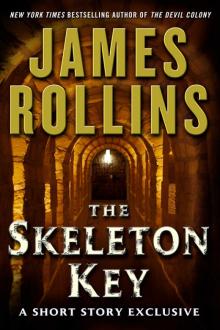 The Skeleton Key
The Skeleton Key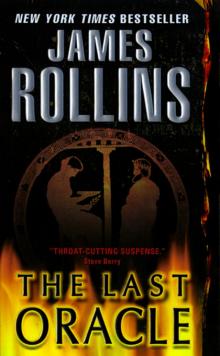 The Last Oracle
The Last Oracle The Judas Strain
The Judas Strain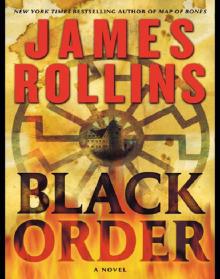 Black Order
Black Order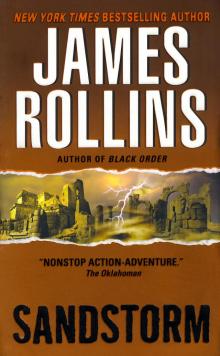 Sandstorm
Sandstorm Ghost Ship
Ghost Ship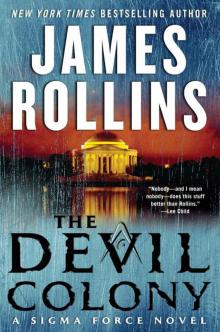 The Devil Colony
The Devil Colony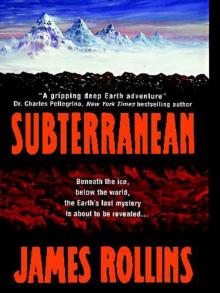 Subterranean
Subterranean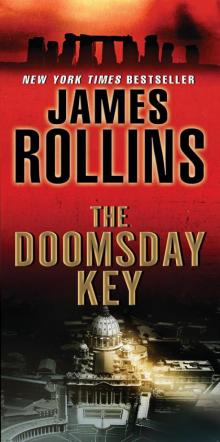 The Doomsday Key
The Doomsday Key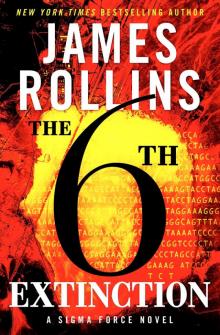 The 6th Extinction
The 6th Extinction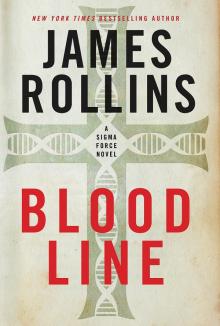 Bloodline
Bloodline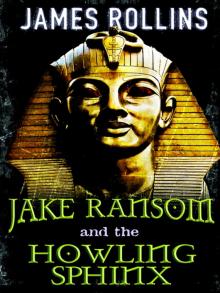 Jake Ransom and the Howling Sphinx
Jake Ransom and the Howling Sphinx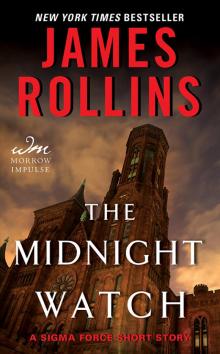 The Midnight Watch
The Midnight Watch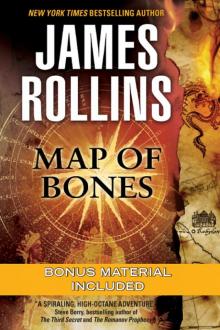 Map of Bones
Map of Bones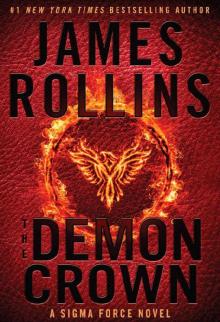 The Demon Crown
The Demon Crown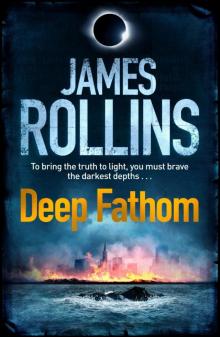 Deep Fathom
Deep Fathom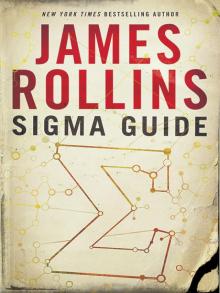 Sigma Guide
Sigma Guide Kowalski's in Love
Kowalski's in Love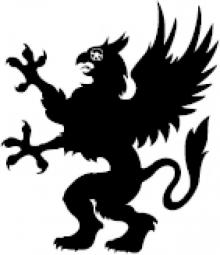 Jake Ransom and the Skull King's Shadow
Jake Ransom and the Skull King's Shadow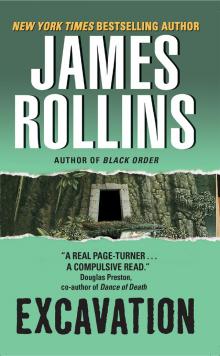 Excavation
Excavation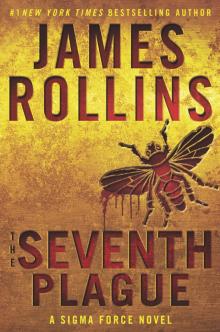 The Seventh Plague
The Seventh Plague Altar of Eden
Altar of Eden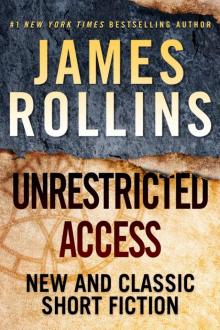 Unrestricted Access: New and Classic Short Fiction
Unrestricted Access: New and Classic Short Fiction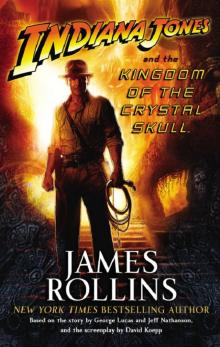 Indiana Jones and the Kingdom of the Crystal Skull
Indiana Jones and the Kingdom of the Crystal Skull Crucible
Crucible The Eye of God
The Eye of God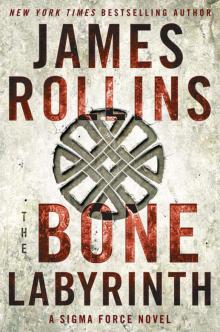 The Bone Labyrinth
The Bone Labyrinth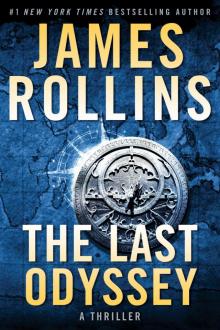 The Last Odyssey: A Thriller
The Last Odyssey: A Thriller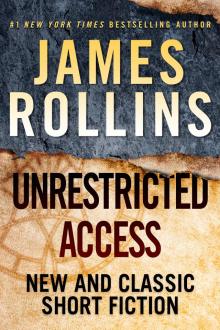 Unrestricted Access
Unrestricted Access Amazonia
Amazonia Blood Brothers: A Short Story Exclusive
Blood Brothers: A Short Story Exclusive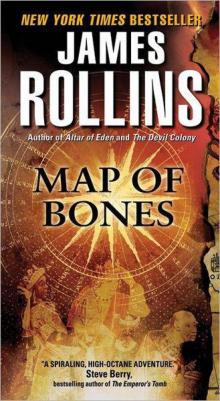 Map of Bones: A Sigma Force Novel
Map of Bones: A Sigma Force Novel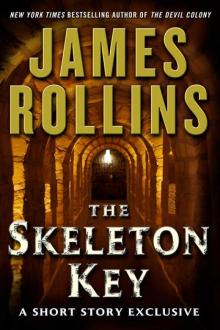 The Skeleton Key (sigma force)
The Skeleton Key (sigma force)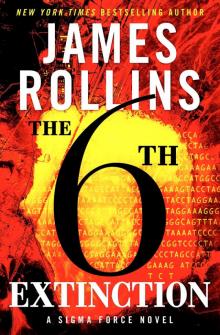 Sigma Force 10 - The Sixth Extinction
Sigma Force 10 - The Sixth Extinction Innocent Blood
Innocent Blood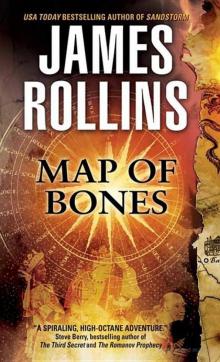 Map of Bones sf-2
Map of Bones sf-2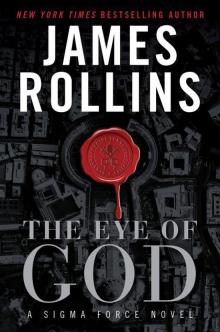 The Eye of God: A Sigma Force Novel
The Eye of God: A Sigma Force Novel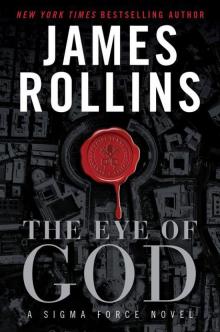 The Eye of God: A Sigma Force Novel sf-9
The Eye of God: A Sigma Force Novel sf-9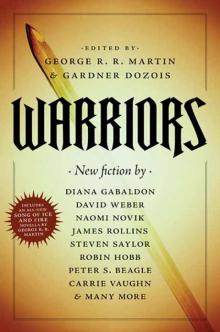 The Pit
The Pit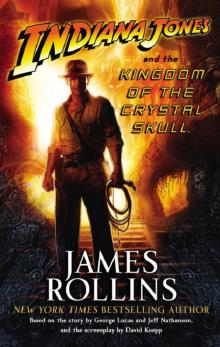 Indiana Jones and the The Kingdom Of The Crystal Skull
Indiana Jones and the The Kingdom Of The Crystal Skull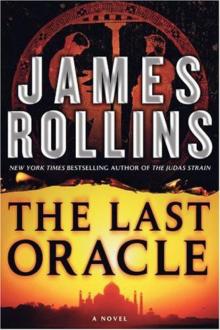 The Last Oracle (2008) sf-5
The Last Oracle (2008) sf-5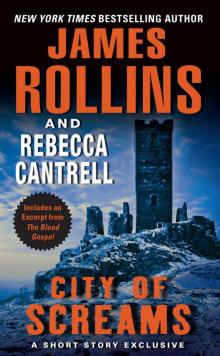 City of Screams
City of Screams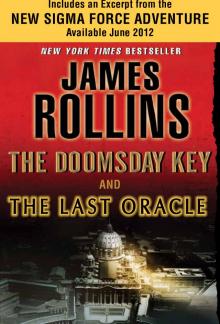 The Doomsday Key and The Last Oracle with Bonus Excerpts
The Doomsday Key and The Last Oracle with Bonus Excerpts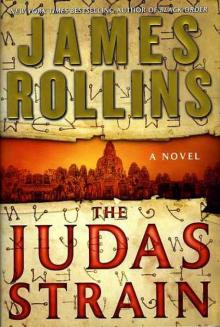 The Judas Strain sf-4
The Judas Strain sf-4 Blood Infernal
Blood Infernal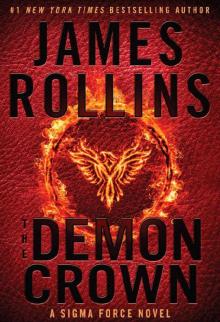 The Demon Crown: A Sigma Force Novel
The Demon Crown: A Sigma Force Novel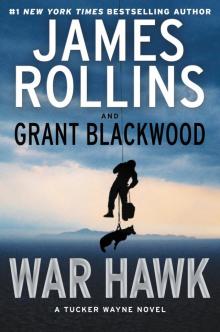 War Hawk: A Tucker Wayne Novel
War Hawk: A Tucker Wayne Novel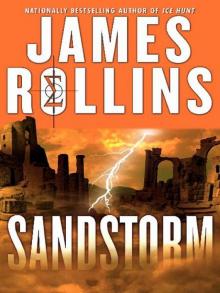 SANDSTORM sf-1
SANDSTORM sf-1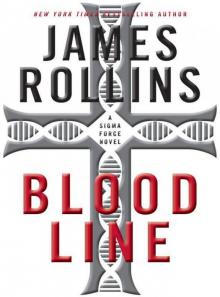 Bloodline: A Sigma Force Novel
Bloodline: A Sigma Force Novel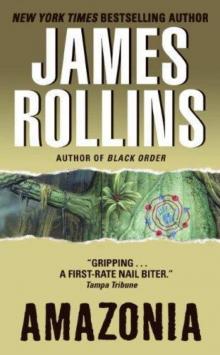 Amazonia: a novel
Amazonia: a novel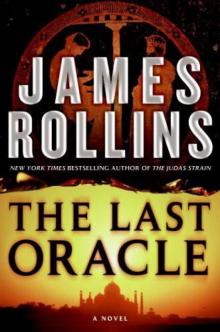 The Last Oracle: A Sigma Force Novel
The Last Oracle: A Sigma Force Novel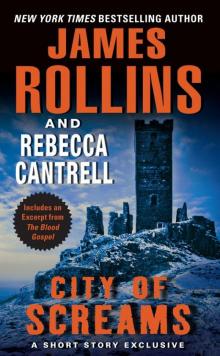 City of Screams (the order of the sanguines)
City of Screams (the order of the sanguines)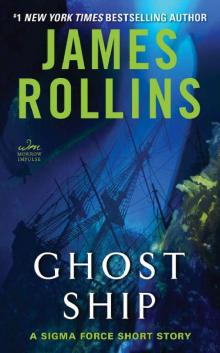 Ghost Ship: A Sigma Force Short Story
Ghost Ship: A Sigma Force Short Story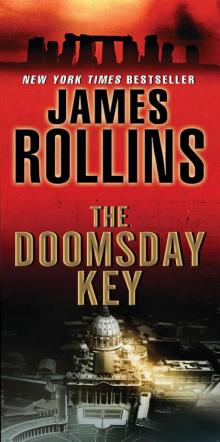 The Doomsday Key: A Sigma Force Novel
The Doomsday Key: A Sigma Force Novel